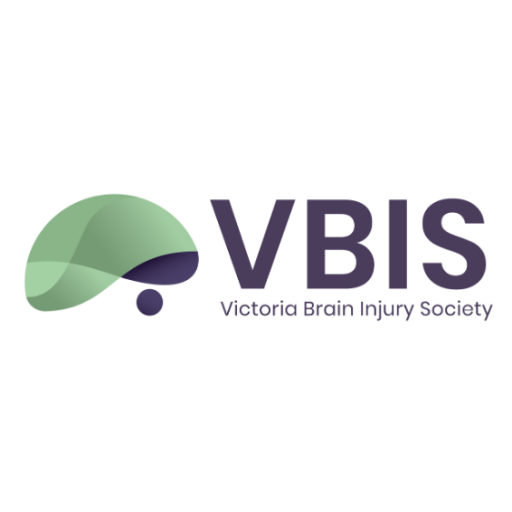By Adam Scott
Not all brain injuries are visible. For many survivors, the most disruptive symptoms aren’t the ones you can see, rather, they’re the ones that affect how a person thinks, feels, and functions. These “hidden” or invisible symptoms of brain injury can linger for long periods of time, often without clear answers or validation.
If you’ve ever struggled with unexplained brain fog, mood swings, or trouble concentrating after a head injury you’re not alone. These symptoms are real, and they deserve attention and support. In this blog, we explore what hidden symptoms look like, why they’re so often overlooked, and how people can get the help they need to recover.
What Are Hidden or Invisible Symptoms?
Hidden or invisible symptoms are the effects of a brain injury that don’t show up on a scan, and may not be immediately obvious to others. Unlike physical symptoms such as slurred speech or balance issues, these symptoms often affect cognition, emotions, and behavior. They can significantly impact daily life, even though the person may “look fine” on the outside.
Why Brain Injuries Often Go Undetected
One of the biggest challenges with brain injury is that many of the symptoms are subtle or delayed. Because they don’t always show up on tests, and because survivors may appear physically healthy, these injuries can be minimized. People may be told to “shake it off” or that their symptoms are due to stress or burnout, rather than a neurological issue. This misunderstanding can lead to delays in treatment, lack of accommodations at work or school, and a deep sense of frustration for survivors who feel unseen.
Common Non-Physical Symptoms
Hidden symptoms of brain injury can vary, but some of the most common include:
- Brain fog: Trouble thinking clearly, feeling mentally slow or confused
- Irritability: Easily frustrated or reactive, even in low-stress situations
- Mood swings: Sudden shifts in emotions, sometimes without obvious cause
- Trouble concentrating: Difficulty focusing, paying attention, or finishing tasks
Mild Brain Injuries Can Still Be Serious
Just because a brain injury is labeled “mild” doesn’t mean the impact is. Concussions and other mild traumatic brain injuries (mTBI) can cause lasting symptoms that affect how a person thinks, feels, and functions. Many survivors of so-called “mild” injuries struggle for weeks or months before realizing something deeper is going on.
Concussions and Post-Concussion Syndrome
A concussion is a type of mild traumatic brain injury caused by a bump, blow, or jolt to the head. While most people recover within a few weeks, others develop Post-Concussion Syndrome (PCS): a condition where symptoms persist for longer and may even intensify over time. PCS can include fatigue, memory issues, emotional instability, and difficulty concentrating.
Delayed Onset of Symptoms
One of the reasons brain injuries are often missed is because symptoms don’t always show up right away. Some people feel fine immediately after the injury, only to experience symptoms days later. This delay can make it hard to recognize the correlation, and survivors may not realize their challenges are related to a concussion.
When to Seek Help for “Mild” Symptoms
If you’ve had a head injury, even a minor one, and you’re experiencing ongoing symptoms like headaches, fogginess, irritability, or trouble thinking, it’s important to seek help. These symptoms are not “just in your head,” they’re legitimate effects of brain injury that deserve care and attention. Talk to your doctor, reach out to a brain injury organization like VBIS, and don’t wait for things to get worse before taking action.
Barriers to Diagnosis and Support
Recognizing and treating brain injury symptoms should be straightforward, however, for many survivors, it’s anything but. Invisible symptoms often go unrecognized, and survivors face barriers that delay diagnosis, reduce access to care, and leave them feeling misunderstood.
Misdiagnosis and Stigma
Many people with hidden symptoms are misdiagnosed, or can be dismissed altogether. Fatigue may be mistaken for laziness. Mood swings might be labeled as depression without any exploration of brain injury. And because imaging like MRIs or CT scans often appear “normal” after a mild brain injury, healthcare providers may overlook some symptoms.
Challenges with Family, Work, and Social Life
In addition to misdiagnosis, invisible symptoms often create friction in relationships. Loved ones may struggle to understand the changes in memory, mood, or energy. Employers may not offer accommodations if the injury isn’t visible or documented. And survivors may withdraw socially to avoid situations that feel overwhelming or exhausting. Without understanding and support, many people find themselves managing their symptoms in silence, and feeling increasingly disconnected from the world around them.
Mental Health Impacts
It’s no surprise that untreated brain injury symptoms can take a toll on mental health. Depression, anxiety, low self-worth, and even trauma responses are common. Survivors may feel stuck in a cycle of not being believed or understood, which only deepens the emotional impact of the injury.
Access to compassionate, informed care is essential — and that’s where local support like VBIS comes in.
Local Support for Cognitive & Emotional Recovery
You don’t have to navigate the effects of a brain injury alone. In Victoria, BC, there are resources and programs specifically designed to support people dealing with the cognitive and emotional symptoms of brain injury.
VBIS Programs That Address Hidden Symptoms
At the Victoria Brain Injury Society, we offer a range of services that support survivors experiencing memory loss, mood changes, brain fog, and other invisible effects of brain injury. These include:
- One-on-one case management to help with care coordination, goals, and access to services
- Peer support groups where survivors can share experiences and feel understood
- Workshops and education sessions on fatigue, memory, stress, and self-advocacy
Navigating Mental Health Services in Victoria
Finding mental health support after a brain injury can be challenging, especially when symptoms don’t fit neatly into a diagnosis. VBIS can help guide survivors toward services that understand the complexity of brain injury, including:
- Counselling programs
- Trauma-informed care providers
- Psychiatric assessments
- Community health clinics with brain injury experience
Self-Advocacy Tips for Clients and Caregivers
Whether you’re a survivor or a caregiver, advocacy is key. Here are a few tips to help:
- Write down symptoms and how they impact daily life
- Bring a support person to medical appointments to help explain and take notes
- Ask directly for accommodations at work, school, or home
- Use specific examples (e.g., “I can’t follow conversations in noisy places”) instead of general statements
- Don’t be afraid to follow up or seek second opinions if you feel dismissed
FAQ:
- Q: What are the long-term effects of a mild brain injury?
A: Even a mild brain injury can lead to lasting symptoms like brain fog, fatigue, mood changes, and difficulty concentrating. These effects can persist for months or longer and may impact daily life, work, and relationships. - Q: How can I tell if my symptoms are brain injury-related?
A: If you’ve experienced a head injury, and later notice changes in thinking, mood, or energy, it’s worth speaking with a doctor. Tracking symptoms over time can help connect the dots and lead to better care. - Q: Can I still get help even if I wasn’t hospitalized?
A: Yes. You don’t need to have been hospitalized or diagnosed at the time of injury to access support. Many people develop symptoms days or weeks later, and help is still available. - Q: What support is available for cognitive symptoms in Victoria?
A: VBIS offers programs focused on cognitive recovery, including case management, peer groups, and education sessions. We can also connect you to local counselling and rehab services. - Q: Do I need a referral to access VBIS services?
A: No referral is needed. Survivors, family members, or caregivers can contact VBIS directly to get started with support.



